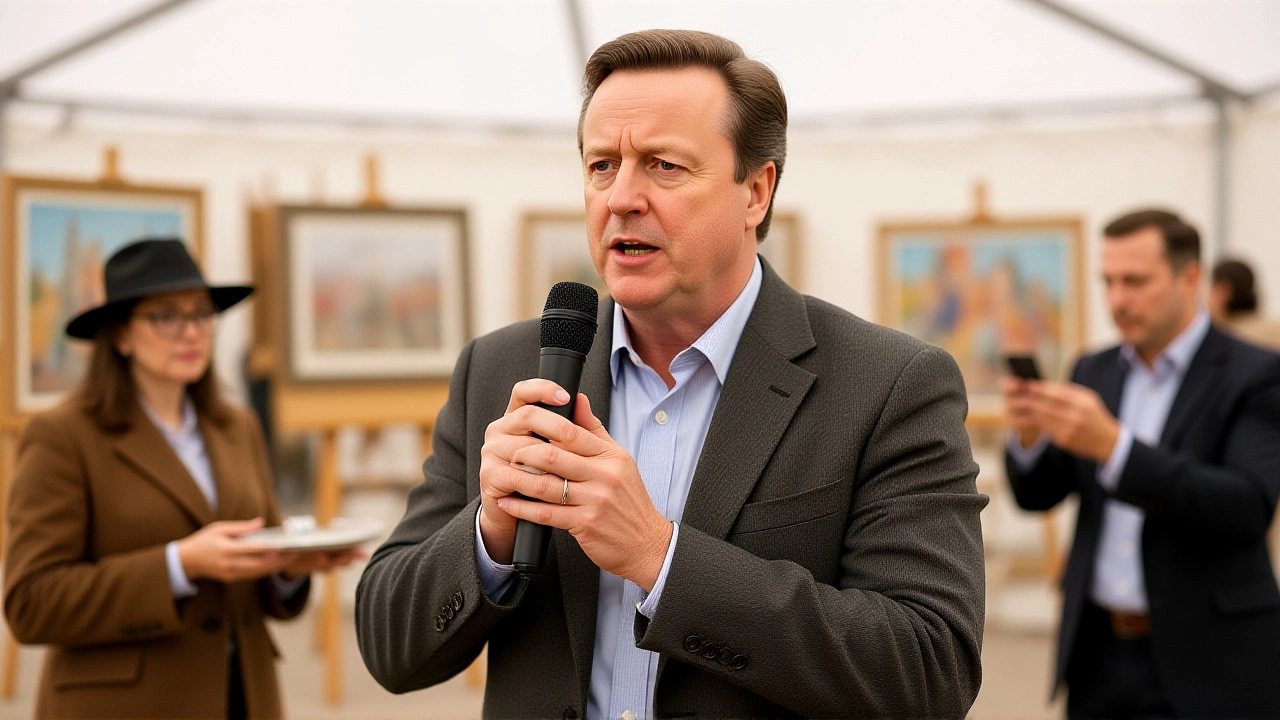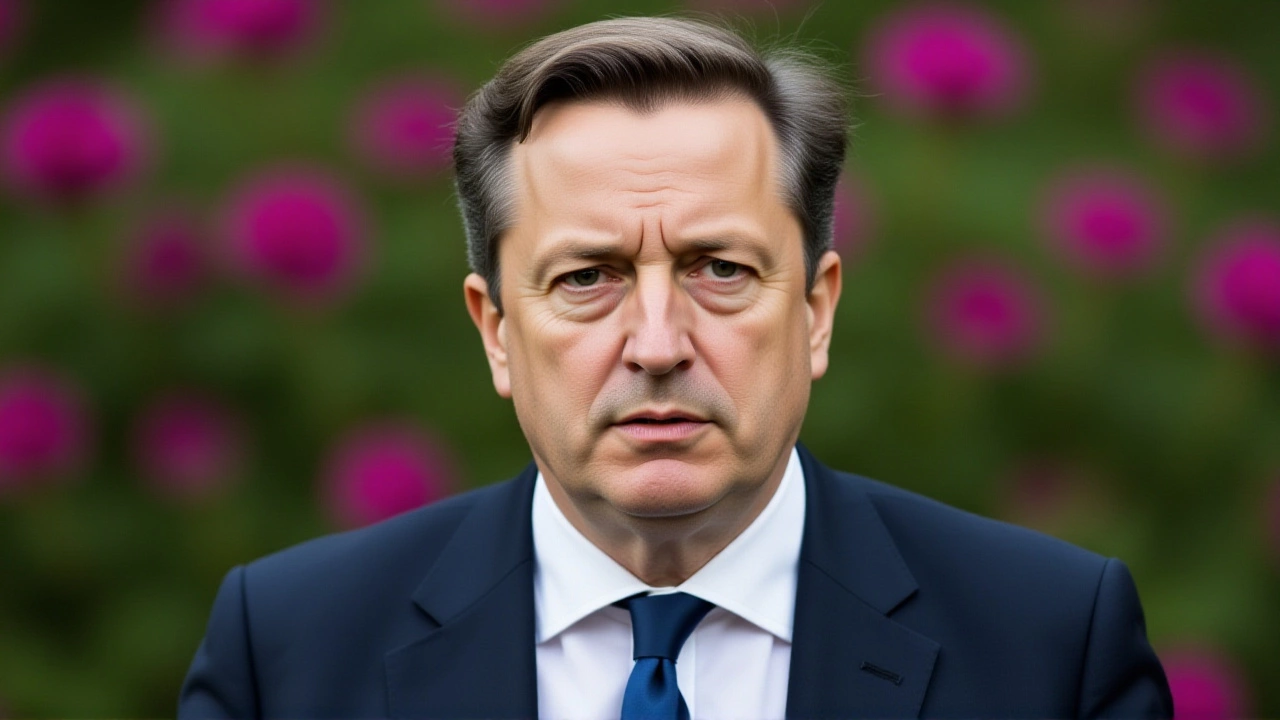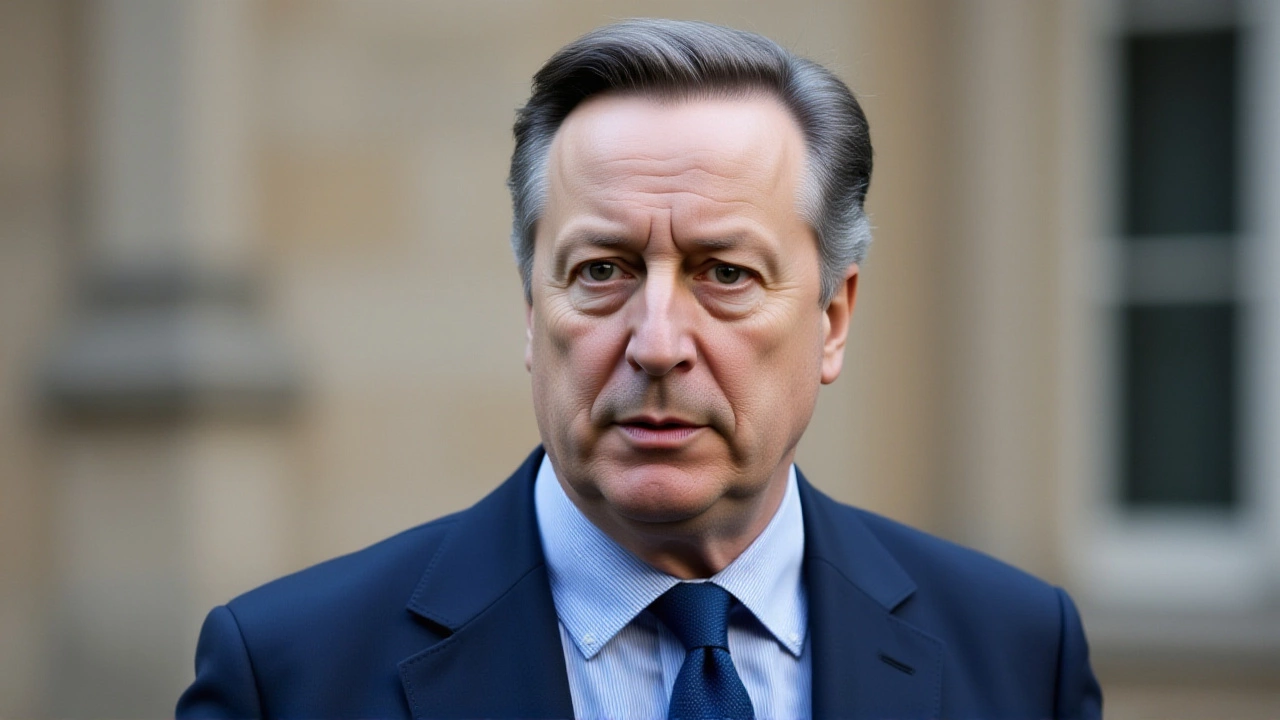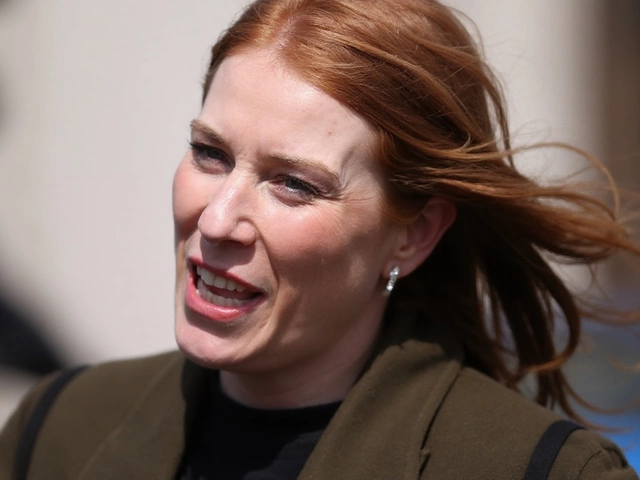On November 13, 2023, David Cameron walked back into the heart of British power—not as a former prime minister looking back, but as the man now in charge of the nation’s foreign policy. Appointed by Prime Minister Rishi Sunak just 36 days after the October 7 Hamas massacre in Israel, Cameron became the first ex-UK prime minister to return to the Cabinet in more than 50 years. The move stunned Westminster. It wasn’t just a comeback. It was a calculated gamble, made at a moment when the world was fraying: Russia’s war in Ukraine dragged on, and the Middle East teetered on the edge of regional collapse. Cameron, 56, was immediately elevated to the House of Lords as Baron Cameron of Chipping Norton, sidestepping the unwritten rule that senior ministers must sit in the elected Commons. The constitutional bypass? Unprecedented. The message? The stakes were too high for business as usual.
A Prime Minister’s Second Act
Cameron’s political arc has always defied expectations. He took over the Conservative Party in 2005 after three straight election losses, aged just 38. By 2015, he’d pulled off the impossible: winning a full-term majority, increasing both votes and seats—something no British PM had done since Churchill. Then came Brexit. On June 24, 2016, the day after the referendum, he resigned. He vanished from public life—not into obscurity, but into a world of memoirs, tennis matches, and corporate advisory roles. Critics called it a quiet retreat. Supporters said he was rebuilding. The truth? He never really left. He was waiting.The Middle East Pivot
Within weeks of his appointment, Cameron began reshaping Britain’s approach to the Israel-Palestine conflict. According to Chatham House’s March 2024 analysis, he quietly pushed for the UK to consider recognizing a Palestinian state—even before a final peace deal. That’s a seismic shift. For decades, London had insisted on a two-state solution only after negotiations. Now, Cameron was suggesting recognition as a tool to pressure both sides. He reportedly contributed to early planning for the "day after" in Gaza, working behind closed doors with U.S. officials and regional allies. And then came the strikes. On January 12, 2024, the UK joined the U.S. in launching airstrikes against Houthi targets in Yemen. The goal: protect commercial shipping in the Red Sea from Iran-backed attacks. It was the first time Britain had engaged in direct military action in the region since 2011. Cameron didn’t announce it from the despatch box. He didn’t give a press conference. He let the Ministry of Defence handle the optics. His focus? Diplomacy. Not spectacle.
Avoiding the Spotlight
Here’s the twist: Cameron, the man now running Britain’s foreign policy, barely showed up in Parliament. Records show he answered just one set of questions in the House of Lords. He skipped the Foreign Affairs Committee. He dodged a scheduled showdown with Sir William Benjamin Cash KC, the formidable chair of the European Scrutiny Committee. Instead, he was in the Middle East—again. And again. And again. Between November 2023 and June 2024, he made 54 diplomatic trips, according to Copenhagen Democracy Summit 2025 documentation. Meanwhile, Andrew Mitchell, the Minister of State for Development and Africa, became the de facto face of the Foreign Office in the Commons. The Institute for Government’s Jill Rutter called it "a masterclass in power without accountability." Critics accused him of operating like a shadow minister. Supporters said he was doing what needed to be done—without the noise.The Legacy Question
Cameron’s tenure as Foreign Secretary has been defined by quiet influence, not grand speeches. He hasn’t reignited the culture wars. He hasn’t challenged Sunak publicly. He’s been the calm hand on the tiller during a storm. But that’s precisely why it matters. In an era of populist disruption, his return signals a return to elite diplomacy—backchannel talks, discreet alliances, and policy shifts whispered, not shouted. His work on Palestine recognition, if adopted, could redefine Britain’s role in the region for a generation. Yet the questions linger. Was this a strategic masterstroke—or a dangerous bypass of democratic norms? Why was a former PM, who left office in disgrace over Brexit, suddenly deemed indispensable? And what does it say about the state of British politics when the most experienced foreign policy hand is someone who hasn’t held an elected seat in eight years?
What’s Next?
Cameron is set to speak at the Copenhagen Democracy Summit 2025 on June 5–6, 2025, where he’ll address "the forces of populism" and "moderate conservatism in an age of disruption." It’s a fitting stage. He’s no longer a party leader. He’s not a backbencher. He’s something new: a statesman without a constituency, wielding influence through access, not authority. As the UK heads toward a general election expected before January 2025, Cameron’s future remains opaque. Will he seek to return to the Commons? Will Sunak keep him on? Or is this a final, carefully curated act—a last chapter written not in votes, but in quiet diplomacy?Frequently Asked Questions
Why was David Cameron appointed to the House of Lords instead of running for a Commons seat?
Cameron was elevated to the House of Lords as Baron Cameron of Chipping Norton to bypass the constitutional convention that senior ministers must sit in the elected Commons. This allowed him to assume the Foreign Secretary role immediately without contesting a by-election, which would have taken weeks and risked political instability during a global crisis. The move was legally permissible but historically rare for a former prime minister.
What’s the significance of Cameron suggesting the UK recognize Palestine before a peace deal?
For decades, the UK has waited for a negotiated two-state solution before recognizing Palestine. Cameron’s suggestion to recognize it preemptively marks a major policy shift, potentially aligning Britain with countries like Spain and Ireland. It signals a willingness to use recognition as leverage—pressuring Israel to halt settlement expansion and encouraging Palestinian leadership to engage in negotiations under international pressure.
How did Cameron avoid parliamentary scrutiny during his tenure?
Cameron avoided direct questioning in the Commons by operating primarily from the House of Lords, where scrutiny is less intense. He skipped key sessions with the Lords Foreign Affairs Committee and declined to face tough interrogations from MPs like Sir William Cash. Instead, junior ministers like Andrew Mitchell handled Commons duties, raising concerns about democratic accountability and transparency in foreign policy decisions.
What impact did Cameron’s 54 diplomatic trips have on UK foreign policy?
Cameron’s 54 trips—spanning the Middle East, Europe, and the Indo-Pacific—re-established Britain’s diplomatic presence after years of reduced engagement. He personally brokered backchannel talks on Gaza’s post-war governance, strengthened ties with Jordan and Egypt, and coordinated the Red Sea campaign with the U.S. While not all outcomes are public, analysts say his relentless travel helped restore Britain’s credibility as a global mediator.
Is Cameron likely to return to frontline politics after the next election?
It’s unlikely. At 58, Cameron has no interest in contesting a seat. His role appears designed as a temporary stabilizer during crisis, not a long-term political resurrection. He’s positioning himself as a global elder statesman—speaking at summits like Copenhagen 2025—rather than a party leader. His legacy now rests on shaping policy from the shadows, not winning elections.
How does Cameron’s return compare to other former PMs in history?
No former UK prime minister has returned to Cabinet since Anthony Eden in 1957, who briefly served as Foreign Secretary after his premiership. Even Winston Churchill, after losing power in 1945, didn’t return to ministerial office. Cameron’s appointment is thus the most significant political comeback in modern British history—highlighting both the depth of his experience and the fragility of current political leadership.





